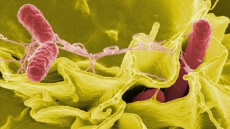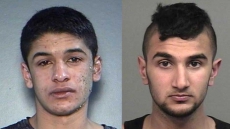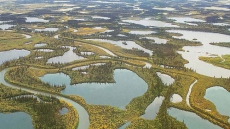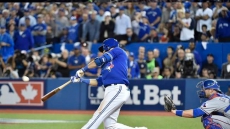OTTAWA — The longest and most expensive election campaign in modern Canadian history will be decided tonight when the last of the ballots are counted, concluding under threat of frost what began in the sweltering heat of an August long weekend.
All that remains for exhausted party workers is to get out the vote in what appears to be an epic battle fought over gut-level values as much as election platforms.
Many questions will be answered.
Can Stephen Harper become the first prime minister since Sir Wilfrid Laurier in 1908 to win four consecutive mandates? And if he doesn't win another majority — meaning 170 seats in the newly expanded House of Commons — will he survive as Conservative party leader?
Can NDP Leader Tom Mulcair miraculously lift the New Democrats to their first national government in Canada's history? Can the party maintain its hard-won 2011 grip on official Opposition status?
Can the Liberals under Justin Trudeau become the first third-place party in federal history to leap straight into government in a single election? Is Canada ready for another Trudeau as prime minister?
When Parliament was dissolved for the election on Aug. 2, the Conservatives held 159 seats in the 308-seat House of Commons, the NDP had 95 and the Liberals 36, with another 18 seats either vacant, held by Independents or shared between the Green party (two seats) and the Bloc Quebecois and a splinter group.
Due to population growth, 30 new seats have been added this election, including 15 in Ontario, six each for Alberta and British Columbia and three more for Quebec.
But the new ridings mean most old riding boundaries also had to be redrawn, literally reconfiguring the electoral map and making seat projections all the more difficult to predict. Combine that with some spectacular polling embarrassments in recent provincial elections and today's outcome remains very much up in the air.

"There's a whole pile of new (riding) configurations, 30 new seats," pollster Frank Graves of Ekos Research said as the campaign wound down.
"There's some complex vote-splitting that we don't know how it will work in those new ridings. We certainly don't know who's going to turn out to vote. That's always critical."
Some 3.6 million Canadians have already cast ballots during the four-day advance polling period on the Thanksgiving long weekend — an increase of 71 per cent over the 2011 election, when only three days of advance polls were held.
Whether that increased voter turnout carries into the main event is another question that will be answered today. Just 61.4 per cent of eligible electors cast a ballot in 2011, up marginally from the 58.8 per cent in 2008 — the lowest ever in a federal election.
The Elections Canada website was briefly unavailable early today due to a high volume of web traffic.
Some polling stations in the hotly contested riding of Winnipeg Centre opened up to an hour late because "a bunch" of Elections Canada workers cancelled at the last minute. Spokeswoman Marie-France Kenny wouldn't say exactly how many people didn't show up as promised but said it was more than a dozen.
Assembly of First Nations national chief Perry Bellegarde — who initially said he wouldn't vote in order to maintain his neutrality, then changed his mind — tweeted about his trip to the polls.
The Bloc's Gilles Duceppe cast his ballot and said he was happy with the reaction he received from voters who welcomed him back after a hiatus from the party leadership. "There's always a phrase that stands out in a campaign and this time it was, 'Thank you for coming back' from beginning to end."

NDP Leader Tom Mulcair, who voted in an advance poll, checked out his party's electoral machinery today in his home riding of Outremont in Montreal.
All parties will be working hard to get their identified voters out. When the public is apathetic, party ground games count for more.
There's nothing particularly complex about getting out the vote on "e-day," as campaign workers call it. The parties make hundreds of calls, checking on whether people have voted or need a ride to a polling station. They knock on doors and put little pamphlets on the knobs reminding supporters it's voting day.
"The methodology has changed, more emails, text and calls," said NDP Spadina-Fort York candidate Olivia Chow. "It's slightly more advanced in the technology, but it's the same principle — getting people out, talking to the neighbours, being at the lobby, reminding at the streetcar stops."
Kitchener Centre Conservative candidate Stephen Woodworth said it really matters when a race is this tight.
"I know the traditional wisdom is that the local candidate will affect something in the range of five to seven per cent at best, and it might be even less," Woodworth said in an interview.
"It's our job to influence that margin, and a close vote is exactly where that will make the difference."

Election observers will be watching closely as another new wrinkle unfolds this evening. For the first time, it is legal to transmit election results across time zones into areas of the country where polls have not yet closed — ending an old blackout policy that was becoming all but impossible to police in the era of social media.
The change was among the least controversial elements of last year's Fair Elections Act.




